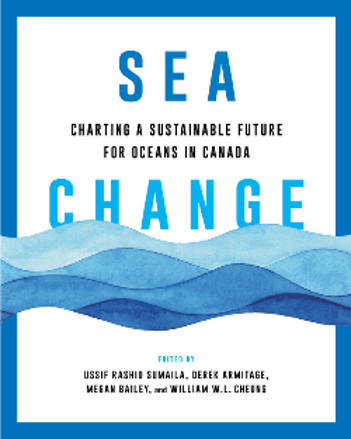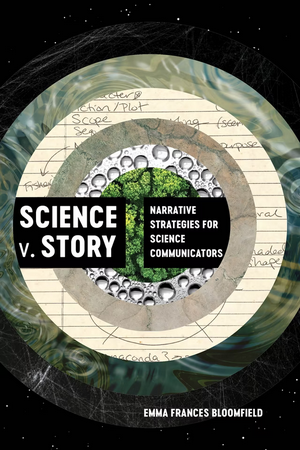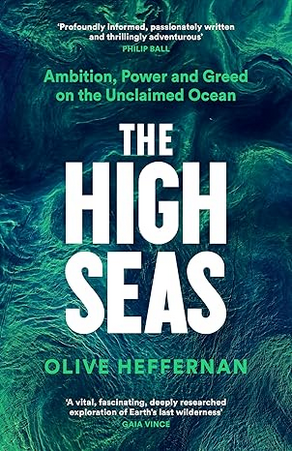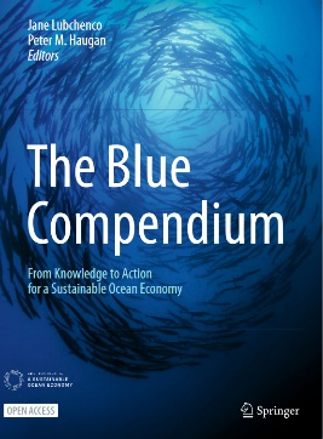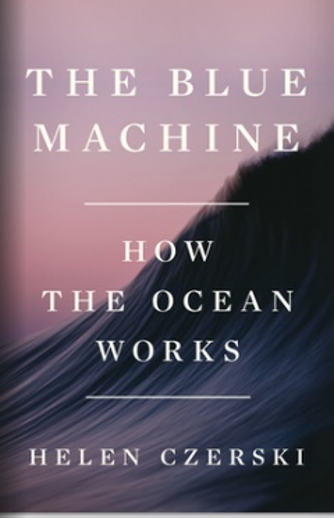The ocean is vast, occupying about 71 percent of the Earth’s surface and holding 97 percent of its water. These dimensions alone highlight how the ocean dominants Earth. However, size is only one of many factors that position the ocean in critically important roles for the well-being of the planet. Food sources, transportation and communication systems, biodiversity, human health, and numerous other global matters depend on the ocean. Furthermore, recognition is growing that today’s climate crisis cannot be addressed without close attention to the functions of the ocean. Understandably, the ocean figures (or should figure) in decision-making at many science-policy interfaces. As researchers, we aim to contribute to increasing understanding of information-related behaviours and patterns (enablers and barriers) at these interfaces and in pursuing this objective we need to keep abreast of what other scholars and practitioners are discovering and advocating. In this post we briefly describe several books that we have been reading over the summer. The multi-dimensional character of science-policy interfaces prompted our reading on the diversity of perspectives covered in this line-up of titles.
~ ~ ~
Sea Change: Charting a Sustainable Future for Oceans in Canada.
Ussif Rashid Sumaila, Derek Armitage, Megan Bailey, and William W. L. Cheung (Eds.)
Sea Change reflects on what it calls “Canada’s ocean endowment” (p. 4), a vast and complex network of social-ecological systems spanning three oceans. The book is an output of the OceanCanada Partnership and synthesizes research on Canada’s marine and coastal spaces. The chapters look both at the broad landscape of ocean research, capturing some of the synergies across the social and political landscape, as well as some of the local specificities and complications of Canada’s diverse marine environments. Bringing together a decade of research, this book considers possible future pathways for managers and researchers across the science-policy community. The impetus for the book focused on the major challenges for Canada’s oceans, including conservation and biodiversity, climate change adaptation, and equitable access for coastal and Indigenous communities. Still, the book is infused with a sense of hope for the future and highlights several bright spots and opportunities for the next generation of Canadians. (RC)
When Science Meets Power
Geoff Mulgan
When Science Meets Power, Sir Geoff Mulgan’s latest book, seeks to answer increasingly common questions at the science-policy interface. How should we govern science? How does science interact with political institutions? How have nations and states around the world used science to their advantage? In this book, Mulgan showcases how science has been used to strengthen and consolidate political power. Drawing on Hegel’s story of the relationship between a master and a servant, Mulgan argues that, though science was once perceived to be a servant of the state, its position has now shifted. How can the gap between science and power be bridged? Given the importance of the ocean in global decisions, this book is particularly informative for anyone interested in how power is wielded by knowledge-holders, for better or worse. (AL)
Science v. Story Narrative Strategies for Science Communicators
Emma Frances Bloomfield
Communication is the “essence” of scientific work claimed William Garvey in his 1979 book Communication, the Essence of Science: Facilitating Information Exchange Among Librarians, Scientists, Engineers, and Students. In the four decades since many authors have explored this subject through a variety of themes. Emma Frances Bloomfield uses the perspective of storytelling in Science v. Story to analyze four scientific controversies: climate change, evolution, vaccinations, and COVID-19. Understanding how communication of research contributes to any one of these subjects can be important to all who are interested in the place of science in society. Since the world’s ocean fills a critical role in global climate activities, how scientific knowledge about the ocean is communicated to the public and decision makers can have far-reaching implications. Bloomfield offers helpful insights from the outlook of storytelling. Drawing from narrative theory and rhetorical studies, she “argues that we can strengthen scientific communication by incorporating storytelling in critical ways that are attentive to audience and context.” (BHM)
The High Seas: Ambition, Power, and Greed on the Unclaimed Ocean
Olive Heffernan
Olive Heffernan presents an in-depth exploration of the world’s largest commons in her new book, The High Seas: Greed, Power and the Battle for the Unclaimed Ocean. Heffernan uses strong storytelling and scientific evidence-backed insights to spotlight the rampant environmental degradation of the half of our planet that is “out of sight and often out of minds.” With a large part of the ocean unclaimed and unregulated, much of the overexploitation in the global commons goes unreported and unpunished, including illegal overfishing, wildlife trafficking, and forced labor among other issues. The book delves into the complexities of legal and ethical dilemmas of ocean stewardship, highlighting the threats of pollution, climate change, and deep-sea mining that are endangering an already fragile ecosystem. Heffernan questions the consequences of failing to govern these areas effectively. Can current practices be sustained, or will the drive for economic growth continue to impede conservation efforts? This book is an eye-opening account offering readers a compelling look at the high stakes of preserving the high seas for future generations. (TM)
The Blue Compendium: From Knowledge to Action for a Sustainable Ocean Economy
Jane Lubchenco and Peter M. Haugh (Eds.)
The Blue Compendium, as the title implies, is a comprehensive collection of concise, yet detailed, information about a range of topics dealing with the ocean. Supported by the United Nations High Level Panel for a Sustainable Ocean Economy, this collection is intended to inform policymaking at the highest level of government and to motivate action across leaders in business, finance, and civil society. Within its 21 chapters, over 250 authors contributed by responding to the question: “How might we use the ocean wisely without using it up?” Of note, this book takes a holistic approach in evaluating prospects for conservation and sustainable use of ocean resources, and includes several chapters dedicated to human dimensions. Each chapter summarises the current state of knowledge, uses case studies as examples, and recommends opportunities for future action at a global level. The ocean is important to everyone, directly or indirectly, and this book contains useful information for anyone looking for contemporary views and potential solutions for realizing sustainability. (SSS)
The Blue Machine: How the Ocean Works
Helen Czerski
Physicist and oceanographer Helen Czerski tells the story of the ocean, outlining the mechanisms through which it acts as an engine for the world, circulating energy, water, life, and raw materials in her new book, The Blue Machine. Beautifully written, Czerski’s book illustrates the power and awe of the ocean by drawing on science, history, nature, and culture, and she explains how it is the interrelationship between its unique elements, water temperature, salinity, gravity, and the movement of the earth that support life, and drive its purpose. After focussing on what fuels the machine, she takes us on a journey into the ocean, describing its messengers, passengers, and voyagers, making what is invisible, both visible and real. Through increasing our understanding of the ocean, Czerski leaves us with a choice, what do we do with this knowledge? We have fundamentally impacted the engine that is the ocean, how do we use our knowledge and collective wisdom to act for change? Recognizing how connected we are to the ocean, can lead us to choose better decisions and paths. (ST)
~ ~ ~
For too long, the ocean seemed to be infinite, not only in space, but also in the abundance of living organisms and other extractable resources. That assumption, though, is increasingly being proven to be quite simply wrong. A global common and a major resource for all of humanity, the well-being of the ocean is being severely threatened by many pressures mostly human generated. The new books we have briefly described in this post are helping us to understand and appreciate many factors in marine conservation and sustainability and the many actors involved (and should be included) in decisions affecting the ocean. While the number of publications (research journals, reports, books, etc.) about marine subjects is very large and growing, much about the ocean remains terre incognita. Today, for example, only about 26 percent of the ocean floor has been mapped. The six volumes we have been reading are helping to reduce the gap in understanding and knowledge of the ocean. Other recent books are also documenting global efforts to strengthen understanding of the significance of the ocean and the major decisions and actions needed to mitigate and reduce the damage that humanity is inflicting on marine environments and ecosystems. For example, watch for a forthcoming post that will provide a review of EIUI researcher Elizabeth De Santo’s new book Securitizing Marine Protected Areas: Geopolitics, Environmental Justice, and Science (Routledge, 2025).
~ ~ ~
References
Bloomfield, E. F. (2024). Science v. story: Narrative strategies for science communicators. Oakland: University of California Press. xi, 274 p. ISBN 978-0-520-38083-7.
Czerski, H. (2023). The blue machine: How the ocean works. New York: W.W. Norton & Company. 446 p. ISBN 978-1-324-00671-8.
Heffernan, O. (2024). The high seas: Greed, power, and the battle for the unclaimed ocean. Vancouver, Berkeley, London: Greystone Books; David Suzuki Institute. [viii], 359 p. ISBN 978-1-77164-588-1.
Lubchenco, J., & Haugan, P. M. (Eds.). (2023). The blue compendium: From knowledge to action for a sustainable ocean economy. Cham: Springer International Publishing. xiv, 915 p. ISBN 978-3-031-16276-3; 978-3-031-16277-0. https://doi.org/10.1007/978-3-031-16277-0
Mulgan, G. (2024). When science meets power. Bristol: Polity Press. xii, 265 p. ISBN 978-1-5095-5306-8.
Sumaila, U. R., Armitage, D. R., Bailey, M., & Cheung, W. W. L. (Eds.). (2024). Sea change: Charting a sustainable future for oceans in Canada. Vancouver: UBC Press. xv, 256 p. ISBN 978-0-7748-6904-1.
Authors: Rachael Cadman, Alexandre Legault, Bertrum H. MacDonald, Tamanna Moharana, Suzuette S. Soomai, and Sandra Toze
Tags: Current Literature; Information Use & Influence; Public Marine & Ocean Issues; Policy & Decision Making; Science-Policy Interface; Science Communication
